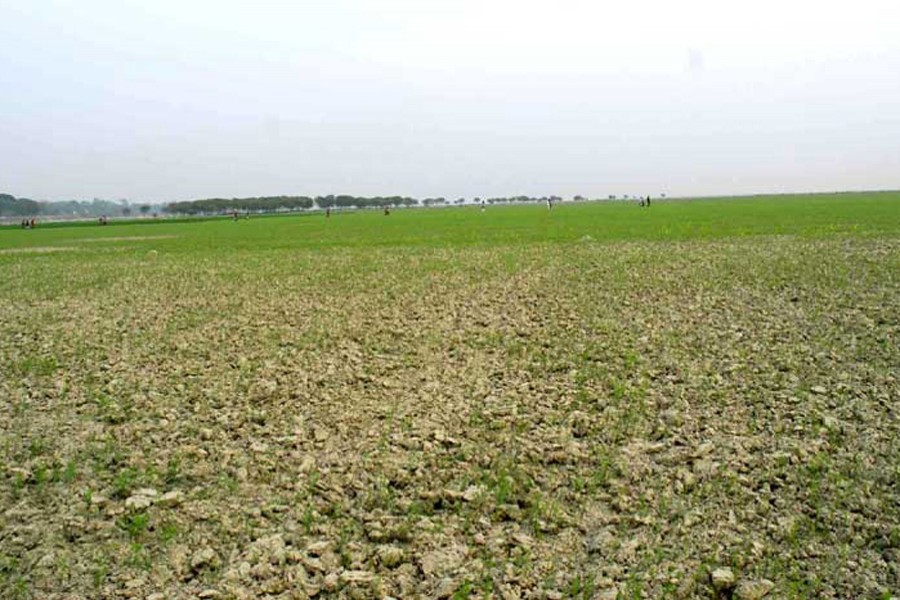News Flash
News Flash

By Md Aynal Haque
RAJSHAHI, Feb 15, 2025 (BSS) – Water flow of the Padma River is declining abnormally, causing dry up its mainstream and tributaries, impacting the environment in the drought-prone Barind tract.
Experts said the entire northern and southern regions of the country, particularly the vast Barind tract, are facing ecological disorder due to adverse impact of the gradual dropping of the Padma water level.
Prof Redwanur Rahman of the Institute of Environmental Sciences at Rajshahi University (RU) said the water level is reducing rapidly and it has reached the lowest mark during the current dry season, causing emergence of a large number of big sandbanks in the riverbed.
The river now has the lowest water flow in some channels, hampering navigability throughout its courses both in the upstream and downstream.
Normal water flow in the river is now visible only for three to four months a year. Water level drop to its lowest ebb in other times causing create long sandy char across the river, making the living and livelihood of the people of char areas vulnerable.
Prof Redwanur Rahman said the water level is declining to a greater extent this season comparing to last couple of years.
If the declining trend continues till the monsoon begins in July, it might lead the entire northern and southern regions to a more disastrous situation, he apprehended.
Ground water level is declining fast in the vast Barind tract making the hand-driven tube-wells non-functional.
Prof Mijanur Rahman of the Department of Geography and Environmental Sciences at RU said the drying up of the river triggered to dropping underground water level which is seriously affecting the irrigation.
The conventional livelihoods on the river basin have also posed an alarming threat to navigation, environment and biodiversity, he said.
If the trend continues, he said the process of desertification would further be intensified in the region leading to a catastrophe in the agriculture sector.
The situation would worsen the adverse impact on the people whose livelihood largely depends on agriculture particularly rice production.
Many water bodies including canals, ponds and other wetlands became dried due to disappearing of the surface water, creating a disastrous situation for the irrigation sector.
"Recharging process of the groundwater is being affected badly due to shortage of surface water," said Prof Mijanur Rahman.
Experts say the Padma is now a dead river and more than 25 tributaries of the river have dried in lack of water flow. Many more tributaries of Padma have lost its course, making it for habitation or cultivation.
In this situation, officials of Barind Multipurpose Development Authority (BMDA) are worried about proper functioning of the deep tube-wells during the current IRRI-Boro season.
The region has been playing a vital role in ensuring food security and socio-economic condition of the region, said BMDA Additional Chief Engineer Abdur Rashid.
He emphasised on keeping the Barind irrigation sector sustainable to keep the food production unhindered.
To reduce dependence on deep tube-well water, he said the farmers are being encouraged to grow less-water consuming crops as an alternative to water-intensive Boro paddy. Immediate attention should be given to rain water harvesting for use throughout the year, he added.